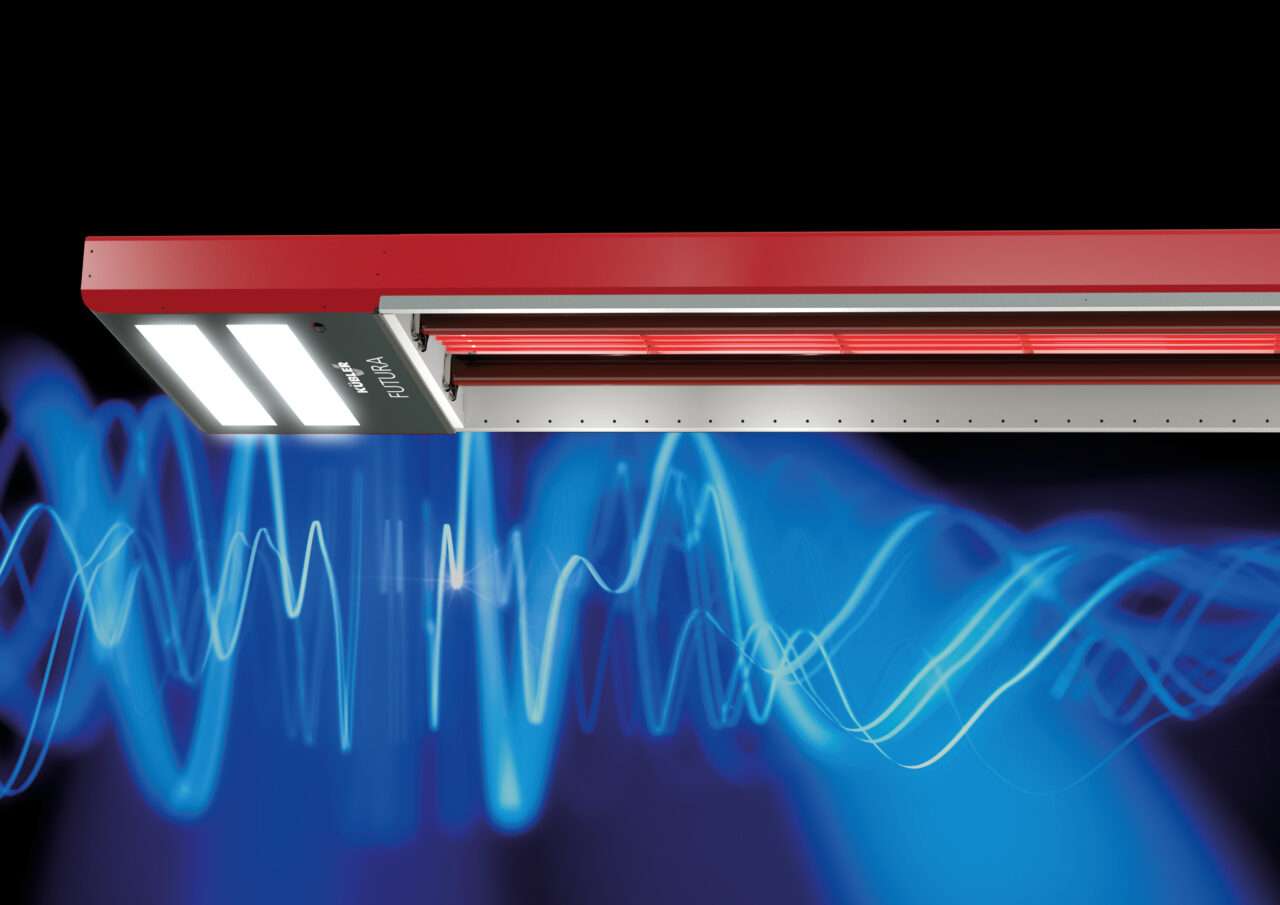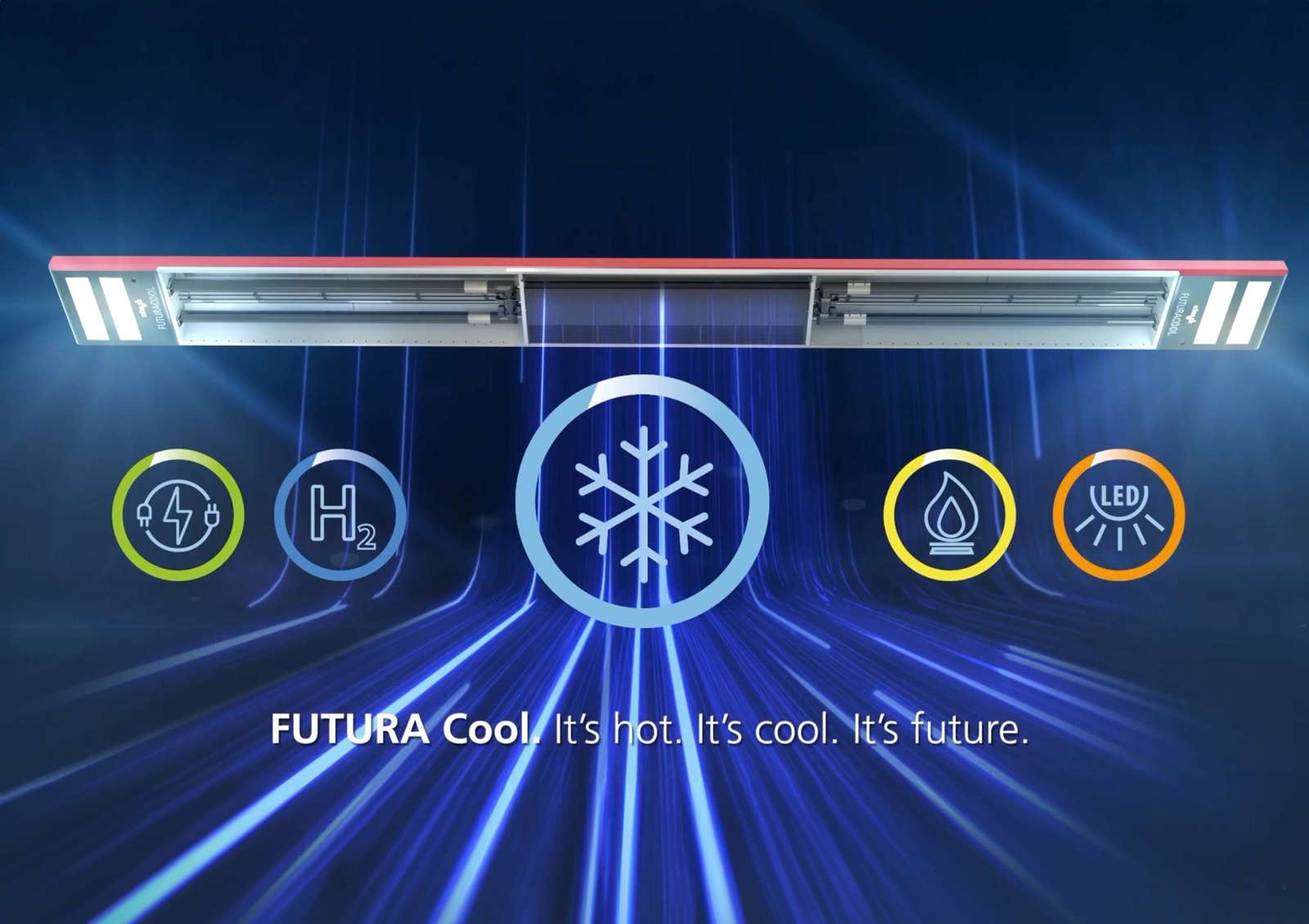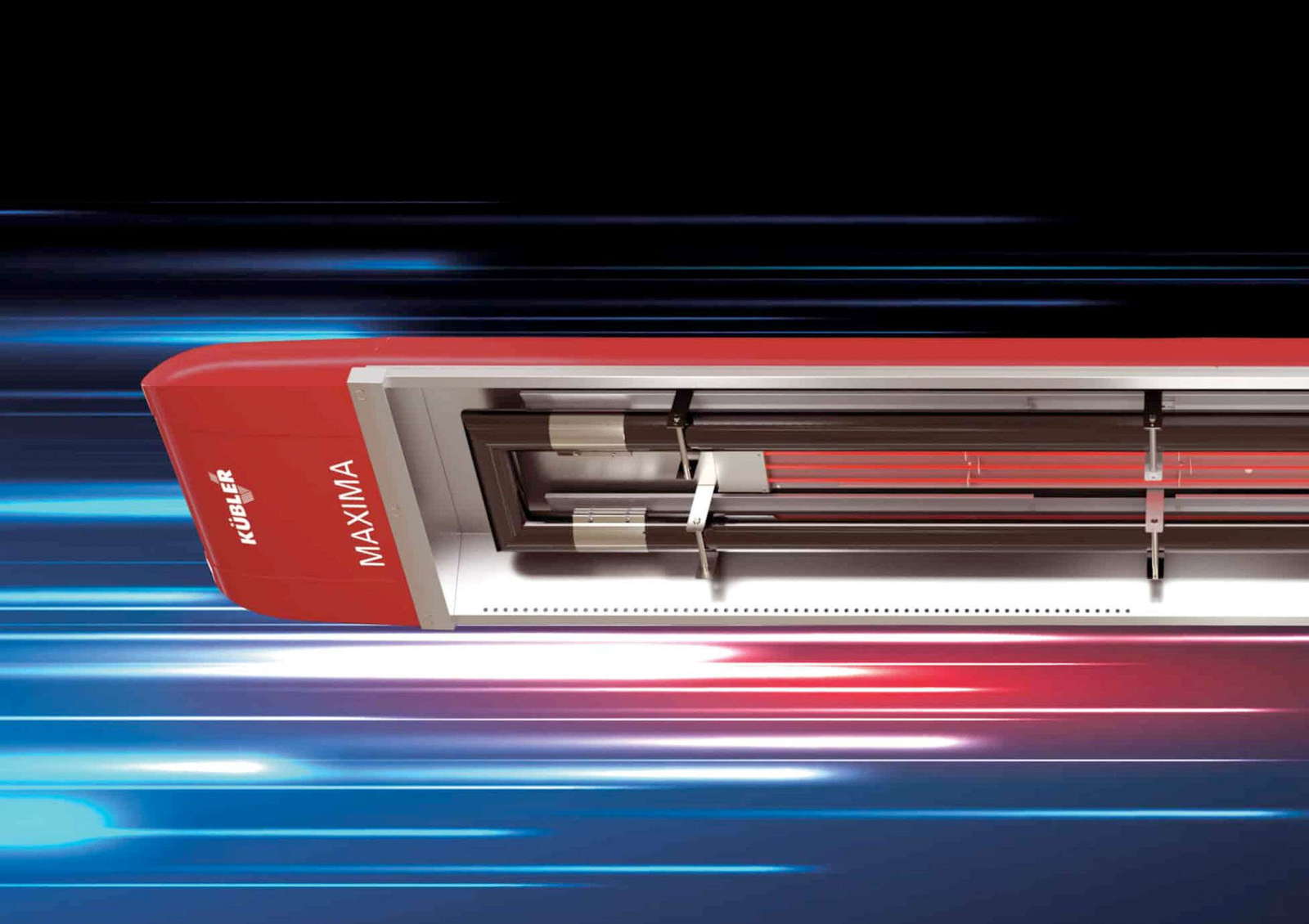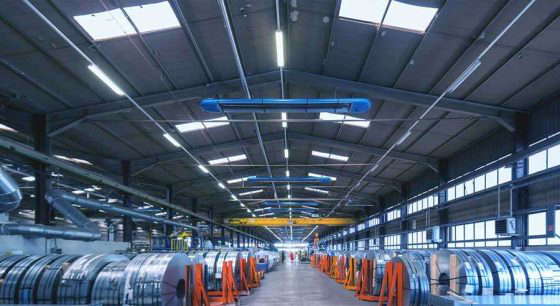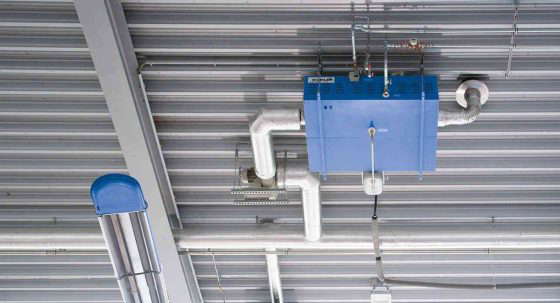Heating for halls: Challenges and solutions
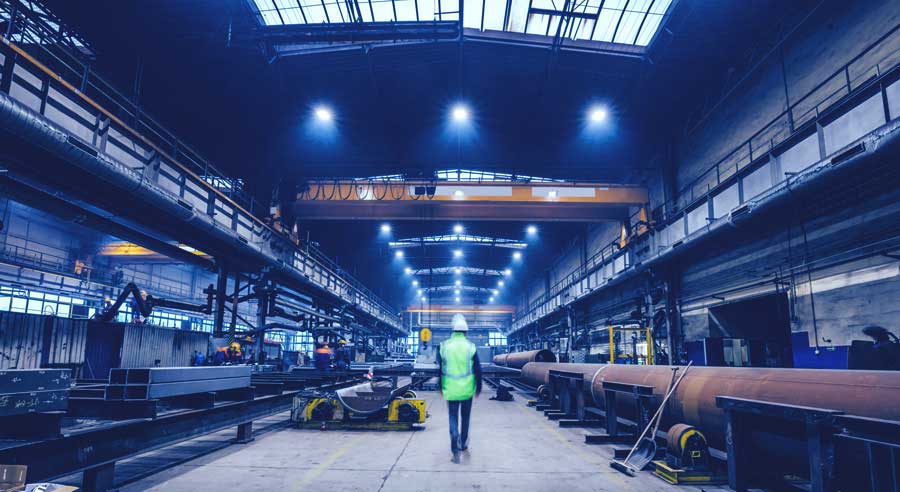
The first challenge in heating halls: The special structural features
The biggest challenge in terms of heating for halls is probably the enormous volume of hall buildings and their ceiling heights of four, ten or more meters. Keeping these buildings at a constant working temperature in winter is anything but trivial. Especially if the energy costs are not to get out of hand. Added to this is the difficulty that no two industrial or commercial buildings are the same. High racks, overhead cranes, a wide variety of floor plans and usage profiles place very specific demands on the heating system to be installed.
Simply distributing a few heating devices around the room is not enough here. Due to their size and height, hall buildings have very special requirements in terms of building physics, which differ fundamentally from multi-storey buildings. That's why it's worth consulting a qualified hall heating expert to avoid having to live with compromises in terms of functionality and end up investing a lot of money unnecessarily for inadequate performance.
Not always in view, but a relevant factor when heating halls: Employee needs and a productive indoor climate
The structural characteristics of hall buildings also make it difficult to Indoor climate and thus ensure a good working atmosphere. However, this is a particularly important factor for the productivity of your employees: ideally, the temperature in the work area should be between 18 and 20 °C. But not every employee needs the same temperature. However, not every employee needs the same temperature: those who work physically would naturally like it to be cooler than their colleagues who work quietly while sitting or standing. This presents a further challenge when choosing the right heating system for your halls, as it means that you need to plan different zones that can be heated flexibly. Both in terms of work areas and usable zones.
Different hall zones require flexible systems
Let's take a closer look at what everyday life looks like in industrial and commercial buildings: In one area of the hall, goods that are sensitive to temperature and condensation are stored and must be kept at a constant temperature. At the other end, a door is left open despite the freezing outside temperature - why close it if it has to be opened again? There is no need to run the heating here. It would be a waste of energy and money. In between are the aforementioned workstations with different temperature requirements.
There are also overhead cranes that are occasionally parked under the heater and block the heat radiation. Perhaps the heating is also switched off overnight to keep operating costs low - and has to heat up again the next morning in time for the start of operations. Without long lead times, of course. In view of all these points, it makes little sense to rely on heating systems for halls that continuously heat the air. Flexible systems are needed!
Energy and climate policy is moving more into focus
However, when it comes to heating systems for halls, it is no longer just what happens inside the hall that counts. What happens outside the building is also becoming increasingly relevant. We are talking here about climate protection and therefore energy consumption. By 2030, primary energy consumption in Germany is to be reduced by 30 % compared to 2008, and halved by 2050 - according to the Federal Ministry for Economic Affairs and Energy's Energy Efficiency Strategy 2050. Germany wants to promote energy efficiency in the building sector in particular.
For hall owners who are planning a new heating system, this means the next challenge is to to use the most efficient heating systems and fuels with the lowest possible emissionsto reduce energy consumption to a minimum. Ideally, the residual heat is also used to really get the most out of the heating for your halls. Making optimum use of energy in this way protects the environment and is in line with climate protection targets. Because one thing is clear: less fuel consumption means lower emissions. But it is also in your own interest to opt for energy-saving hall heating systems. Because:
The question of the right heating system for your halls is closely linked to the question of costs
Over their life cycle, hall heating systems consume six to twenty times more energy than the investment costs. This makes the operation of these heating systems significant cost drivers for hall owners, which are difficult to get under control without an efficient, flexible system. Let's go back to the aspects that arise from the structural features and everyday working life.
Heating the entire room volume: Unnecessary energy consumption. Air heated by warm air heaters that accumulates under the hall ceiling: Unnecessary energy consumption. Heating unused areas of the hall: Unnecessary energy consumption. Overheated hall areas because the heating cannot be flexibly controlled: Unnecessary energy consumption. Heaters that continue to heat even when the hall doors are open: Unnecessary energy consumption. Heaters that have only been heating up the overhead crane parked underneath for hours: Unnecessary energy consumption. Heating that does not match the hall's overall usage profile - unnecessary energy consumption.
The list could go on and on, but it has certainly already become clear: Only modern, intelligent heating systems that have been specifically developed as heating systems for halls can help you to avoid such energy waste traps and thus keep both investment and running costs low. And this also with a view to the future. Because heating costs will continue to rise in the coming years. The reason for this is the new legislation in force since January 01, 2021 CO2-tax for the use of fossil fuels. It therefore makes sense to focus on a particularly CO2-fuel such as gas and a highly efficient heating system for your halls - unless you want to accept the rising costs.
This makes it clear that there are a whole range of challenges when selecting heating systems for halls. It's good to know them and be able to avoid them. This raises the final question:
What is the solution to these challenges?
As described at the beginning, no two halls are the same. The selection of the right heating system for your halls must therefore also take your individual circumstances into account. There is no one-size-fits-all solution. In principle, however, from a ceiling height of four meters, you can master all the challenges mentioned with a modern, gas-powered infrared radiator system. With the help of intelligent control technology and modular extensions, problems such as open hall doors can be detected and the heating in this area can be switched off.
The heating can meet different temperature requirements depending on the zone. As infrared radiant heaters do not heat the air per se, there is neither dust turbulence nor unpleasant draughts. Nor does warm air accumulate unused under the hall ceiling. Put simply, this type of heating only heats what is really needed. In combination with natural gas as a fuel (which has a high primary energy factor and is becoming increasingly green) and clever use of residual heat (for example to heat adjacent offices), you kill all birds with one stone: manageable investment costs. High energy efficiency. Satisfied employees. Low total cost of ownership. Environmental protection. So choose the right solution from the outset when selecting heating for your halls!
-
Infrared hall heating in your production: How to create the right indoor climate for your productionIndoor buildings are a world of their own. Especially in winter. The high rooms pose a real challenge for anyone who wants to ensure the most pleasant working climate possible. But there are solutions - infrared hall heating, for example.
-
In 2021, the new CO2-tax came into force. It is intended to help Germany achieve its climate protection targets. Read on to find out what this means for your company in terms of costs and what you should do now!
-
"No energy transition without energy efficiency" is the title of dena's "Topics and projects" section on its homepage "The best kilowatt hour is the one saved," says Thomas Kübler, Managing Partner of KÜBLER GmbH. Both mean the same thing: It's about curbing energy consumption in general and especially in companies. Because this is an enormous lever for achieving climate targets. And that's not all: energy efficiency also pays off economically if it is approached in the right technological way. Modern infrared heating technology plays an important role here, especially when it is intelligently combined with Bennwert technology.
-
Like all sectors, industry must also do its part to protect the climate and combat global warming. An important point here is investing in energy-efficient, environmentally friendly heating systems. Read this article to find out the specific reasons for doing so.
